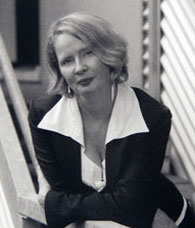Ramadan is the ninth month in the Islamic calendar and one of the holiest months of the year for Muslims. This year around two billion Muslims, including Alumna and Barrister Hauwa Shehu, are observing it. Muslims follow the lunar calendar, therefore the start and end of Ramadan changes each year depending on the sighting of the moon. The end of Ramadan is marked by a celebration called Eid Ul Fitr. In honour of this special month, Hauwa shares five things that you may not know about Ramadan.
- Purpose of Ramadan
Although many people associate Ramadan as being the month in which Muslims fast for around 30 days, from sunrise to sunset, many are unaware that this is not the main purpose. The main purpose is to attain something which in Arabic we call “Taqwa” and can be translated into English as being “God-consciousness” (Surah Al-Baqarah – Quran 2:183). During Ramadan, Muslims make every effort to do good deeds and actions that would be pleasing to God and abstain from bad things. And we try to think of God, who we refer to as Allah, our creator, in everything that we do.
- Fasting exemptions – not everyone fasts
There are many exemptions for people who may not be able to fast, therefore you shouldn’t assume that every Muslim is fasting during Ramadan. Examples of reasons why some Muslims do not fast include if they have a health condition, are elderly, pregnant, breastfeeding, travelling or menstruating. Despite this, they are able to observe the holy month in many other ways, e.g. by praying, reading the Quran, giving charity, supporting their family and community, and avoiding things like gossiping, telling lies or speaking / thinking badly of others.
- Month Quran revealed – Laylatul Qadr
The Quran was revealed to Prophet Muhammed (PBUH) during the month of Ramadan. In particular, Muslims believe it was revealed during the last 10 nights, on a night known as “Laylatul Qadr”- “the night of decree” (Surah Al-Qadr – Quran 97:1). A night in which Allah decides everyone’s fate for the coming year. In light of this, Muslims increase in acts of worship and good deeds more so at this time, as the Quran tells us that any actions and deeds carried out on this night are greater than if you did them for 1000 months.
- Health benefits of Ramadan
For those who do not have any pre-existing medical conditions, fasting has been medically proven to have a number of health benefits including improved blood pressure, metabolism and brain function. It also benefits mental health and wellbeing. Psychologists state that any action undertaken consistently for 30 days becomes a habit. Therefore by engaging in positive behaviours throughout Ramadan, Muslims also benefit psychologically and try to maintain the positive habits throughout the year.
- Zakat Ul -Fitr
A big part of Ramadan is charity. Muslims try to increase their charitable giving during this time. Zakat Ul Fitr is a charitable donation of food that all Muslims who can afford it, must give. It amounts to approximately £5 and reminds all Muslims to think of and have compassion for those less privileged than them.
Supporting Muslim friends, peers and colleagues
- Share celebratory greetings
Wish them ‘Ramadan Mubarak’ at any time throughout the month. At the end, during Eid, you can use the phrase ‘Eid Mubarak’.
- Join in with a fast-a-thon
Many non-Muslims choose to fast for 1 day during Ramadan. Either from sunrise to sunset or simply by missing lunch. The idea is to give an idea of what it is like to fast and try and abstain from bad or negative thoughts/ actions for a period of time. Money saved from not having lunch that day can be donated to charity
- Attend an Iftar
Iftar is the name for the meal in which Muslims break their fast. There are many iftars taking place around the country. You can check online on sites like Eventbrite or ask at your local mosque. But the biggest public Iftars are run by Ramadan Tent Project – Open Iftar. Take a look, and join one of the events for delicious free food and heart warming company.
- Work flexibly
Many Muslims engage in prayers late into the night (Taraweeh) and wake up very early to eat before sunrise (suhoor), so consider avoiding extremely early starts if working with Muslim peers and colleagues. It is also common for some people who are fasting to get tired later in the day, therefore it is considerate to avoid scheduling meetings or deadlines in the later part of the day.
- Check in
Check in on Muslim contacts during this time. Never make assumptions about how someone is observing Ramadan. The best thing to do is ask questions when unsure.
References and Further Reading
https://www.muslimaid.org/media-centre/blog/the-benefits-of-fasting/
https://www.islamic-relief.org.uk/about-us/what-we-do/zakat/zakat-ul-fitr/
https://www.healthline.com/nutrition/fasting-benefits
https://britishima.org/ramadan/compendium/
https://mcb.org.uk/resources/ramadan/
https://www.zakat.org/valid-exemptions-for-not-fasting-ramadan


